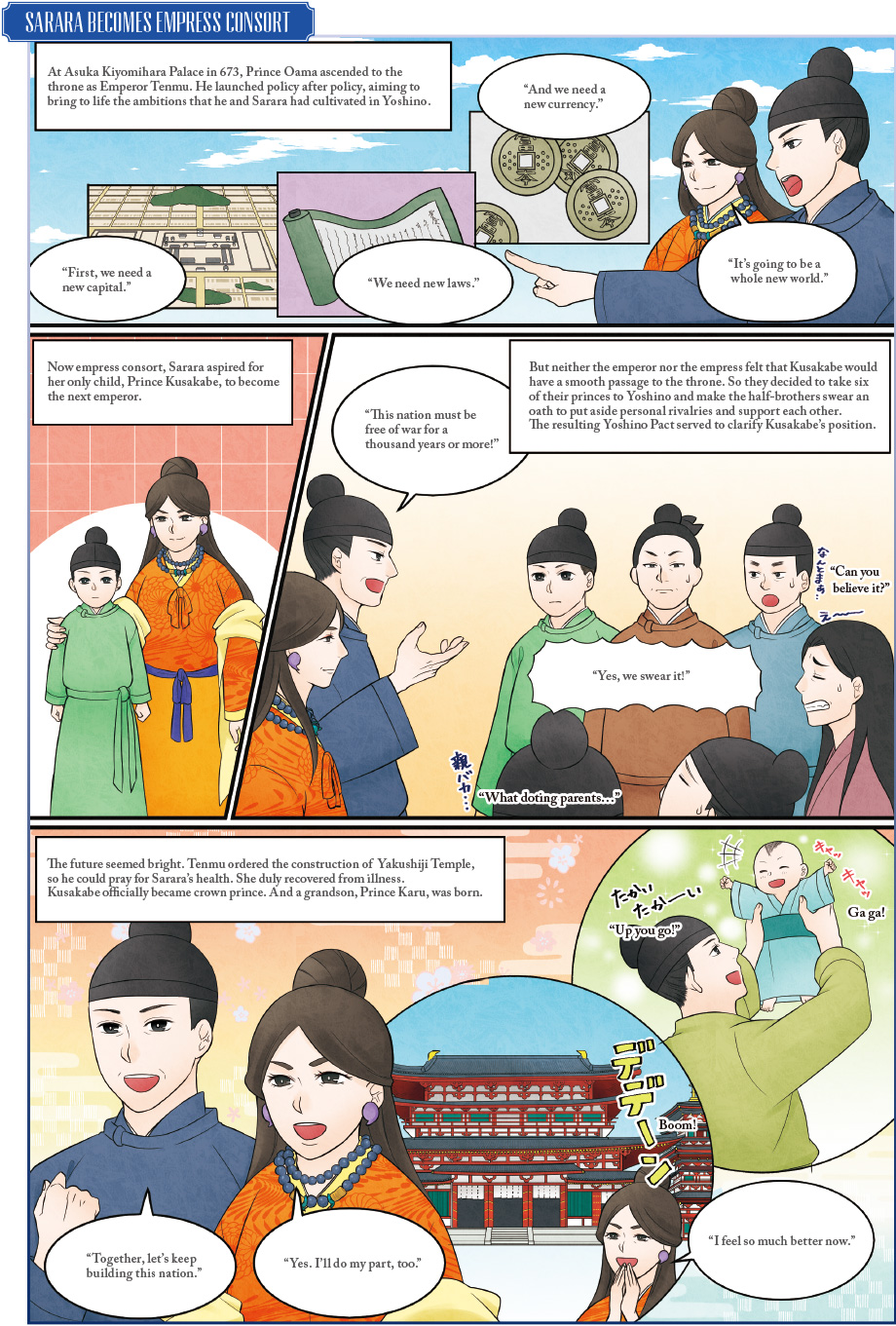Tenmu paves the way for the founding of Japan. Sarara dreams of her son becoming emperor.
Consolidating imperial rule in Asuka, the capital
In 673, Prince Oama ascended to the throne and became Emperor Tenmu. Around this time, the title tenno (“emperor”) first started appearing in place of okimi (“great king”). Tenmu established a political system centered on the imperial family. He also issued the Yakusa no Kabane, which denoted the status of powerful clan members based on eight hereditary ranks (kabane). Tenmu stopped the practice of handing out important posts to powerful clan members. Instead, he consolidated his rule by concentrating power in the hands of the emperor and the imperial family. In contrast to Emperor Tenchi’s iron-fisted rule, Tenmu used his power judiciously to control the clans. Thanks to Tenmu’s personal charisma, his methods were widely accepted. To make up for his time away from politics, Tenmu came up with a series of policies that included the Asuka Kiyomihara Code (a set of laws). He also ordered the compiling of the Nihon Shoki and Kojiki chronicles. And he planned the relocation of the capital to Fujiwara-kyo. Tenmu’s ambitions were so grand and far-reaching that he didn’t live to see them all fulfilled.
The meaning of the Yoshino Pact
Tenmu and Sarara gave much thought to the issue of who would be the next emperor. In the end, they went to Yoshino with six princes: Kusakabe, Takechi, Otsu, Osakabe, Kawashima, and Shiki. Starting with Kusakabe, all of the princes had to swear an oath to cooperate with one another, despite their different lineages. As the son of the emperor and empress, Kusakabe was an obvious candidate for crown prince. Yet Otsu, his immediate younger brother, had superior political acumen and enjoyed wider support. It was therefore crucial to make Kusakabe’s status clear. Another consideration was Tenmu’s perceived legitimacy as emperor. This may have been in question, given that he’d once abdicated the throne before grabbing it back from Emperor Tenchi’s son Prince Otomo. Having Kusakabe installed as crown prince would help to bolster Tenmu’s status as emperor. And his decision to make princes of two of Tenchi’s sons—Kawashima and Shiki—would have further boosted his legitimacy.

